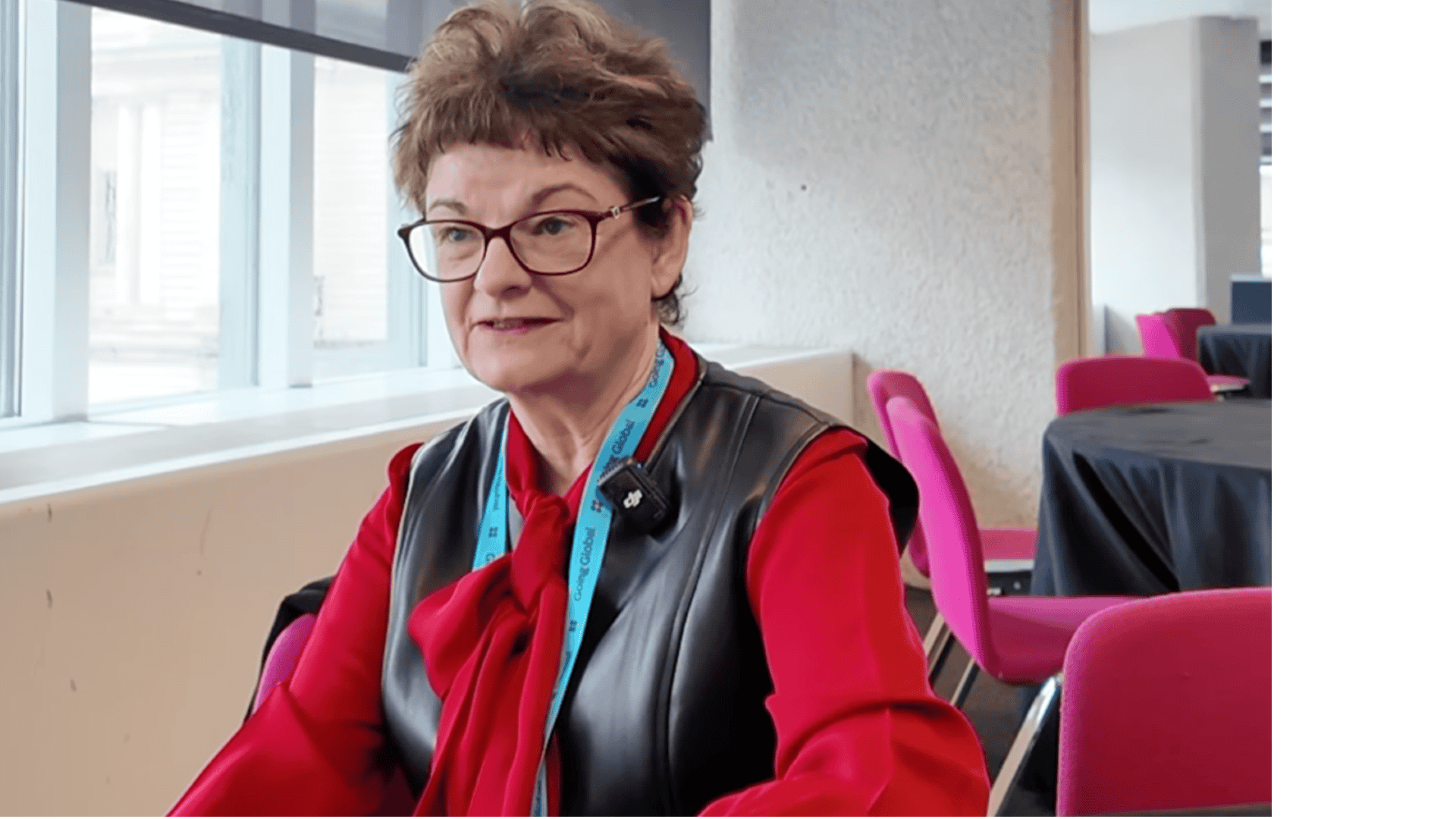The post Professor Dame Sally Mapstone on the role of the arts and humanities in global higher education appeared first on The PIE News.
Tag: Professor
-

3 Questions for Professor Mary Wright
Last year, Brown University announced that Mary Wright was embarking on a new adventure in early 2025.
If you are anywhere near or around the CTL world, you likely know (or know about) Mary Wright. Her 2023 JHU Press publication, Centers for Teaching and Learning: The New Landscape in Higher Education, is a must-read for every university leader. Mary—along with Tracie Addy, Bret Eynon and Jaclyn Rivard—also has a forthcoming book with Johns Hopkins (2026), which will provide a 20-plus-year look at continuities and changes in the field of educational development.
Therefore, it was big news earlier this year when Mary moved from her role as associate provost for teaching and learning and executive director of Sheridan Center at Brown to a new position as a professor of education scholarship at the University of Sydney. With Mary now more than six months in her new role, this was a good time to catch up with how things are going.
Q: Tell us about your new role at the University of Sydney. What does a faculty appointment in Australia constitute in terms of teaching, research and administrative responsibilities?
A: As in the U.S., a faculty appointment (here, called an academic appointment) varies greatly across and even within Australian institutions. In my role, I serve as a Horizon Educator, an education-focused academic role, which carries a heuristic of 70 percent time to education, 20 percent to scholarship and 10 percent to leadership or service-related activities. Like my prior 20-plus years of experience in the U.S., I am still an academic developer (called an educational developer in the U.S.), which means that education most frequently involves teaching and mentoring other academics as learners.
I am a level-E academic, which is akin to a full professor role in the U.S. (The trajectory starts at level A, which encompasses associate lecturer and postdoctoral fellows and goes through level B [lecturer], level C [senior lecturer], level D [associate professor] and level E [professor].)
There are many differences between U.S. and Australian higher education, but I’ll highlight two here in relation to those who work in CTLs. The first and most significant is that, in the U.S., educational developers are often positioned as professional staff. In Australia, many universities treat this work with parity to other academics. I feel that this substantially raises the credibility and value of academic development.
Second, professional learning around teaching is a required part of many academics’ contracts, initially or for “confirmation,” and it is structured into their workloads. I first worried that this would prompt a good deal of reactance, but I have not found this to be the case. I now find this to be a more equitable system for students (and academic success), compared to the U.S.’s (primarily) voluntary approach.
Q: Moving from Rhode Island to Australia is a big move. What is it about the University of Sydney that attracted you to the institution, and why did you make this big move at this point in your career?
A: Three factors attracted me to the University of Sydney. First, I was attracted to what I will call their organizational honesty. The institution was very open that they were not where they wanted to be in regard to teaching and the student experience; they wanted to be a different kind of institution. They also had a very clear theory of change, mapping very much onto metaphors I write about elsewhere: requiring convening and community building (hub); support of individual career advancement (incubator); development of evidence-based practice, such as the scholarship of teaching and learning (sieve); and advancing the value of teaching and learning through recognition and reward (temple).
Specifically, USyd was investing in over 200 new Horizon Educator positions, education-focused academics charged to be educational leaders. One part of my role is to work with this amazing group of academics to advance their own careers, as well as to realize the institution’s ambitions for enhanced teaching effectiveness. To anchor this work at a macro level, USyd also had been working very hard on developing and rolling out a new Academic Excellence Framework, which provides a clear pathway to the recognition and reward of education—in addition to other aspects of the academic role
The University of Sydney is also making a significant investment in grants to foster the scholarship of teaching and learning, which has been a long-standing interest of mine but was often done “off the side of the desk.” My role involves working with people, programs and practices to facilitate SoTL.
In addition to university strategy, I was attracted by the opportunity to work with Adam Bridgeman and colleagues in the university’s central teaching and learning unit. Educational Innovation has been engaged in very interesting high-level work around AI and assessment, as well as holistic professional learning to support academics, but like many CTLs, it has been stretched since COVID to advance a growing number of institutional aims. Because of my prior leadership in CTLs, I felt like I could also contribute in this space.
Q: Pivoting from a university leadership staff role to a faculty role is appealing to many of us in the nonfaculty educator world. (Although I know you also had a faculty position at Brown). Can you share any advice for those who might want to follow in your footsteps?
A: For some context, I started my career in the early 2000s in a professional staff role in a CTL and also occasionally adjuncted. I became a research scientist in the CTL, then moved to direct a CTL in 2016 and had an affiliate faculty position (with the staff/administrative role as primary). In 2020, I then moved to a senior administration role (again, my primary role was professional staff). So, I have worn a number of hats.
Three factors have been helpful in transitioning across roles. First, I love to write, and while the scholarly work rarely “counted” for anything in these series of positions, I think it helped me advance to the next step. Second, it’s important to read a lot to stay current with the vast literature on teaching and learning. I think this can add value to my work with individual academics—to help them publish—as well as my work on committees, where there is often some literature to cite on the topic at hand.
Finally, I think professional associations can be very helpful in building bridges and networks, especially for those considering an international transition. In the U.S., the POD Network was a key source of support. Now, before even applying to my current role, I subscribed to the newsletter of HERDSA (Higher Education Research and Development Society of Australasia) and I participated in one of their mentoring programs. I also serve as a co-editor of the International Journal for Academic Development, which exposed me to articles about Australian academic development, and I got some generous and wise advice from Australian and New Zealand IJAD colleagues about the job search.
-
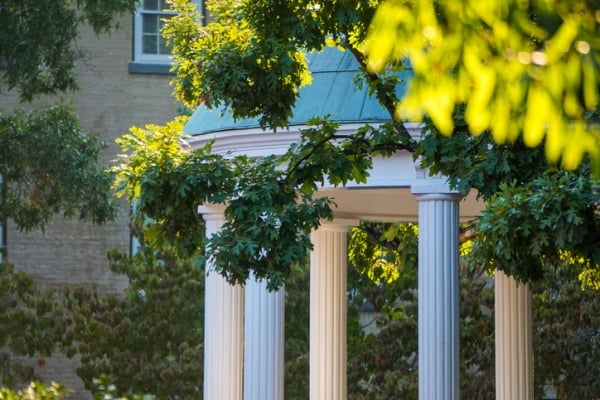
UNC Professor Accused of Advocating Political Violence Reinstated
University officials found “no basis” that Dixon posed a threat or violated university policy.
Marin Herold/iStock/Getty Images Plus
Dwayne Dixon, a professor at the University of North Carolina at Chapel Hill, was reinstated Friday after the university performed a “thorough threat assessment,” Dean Stoyer, vice chancellor for communications and marketing, said in a statement.
Dixon was placed on leave Monday following allegations that he was an advocate for political violence.
“The Carolina Behavioral Threat Assessment and Management Team consulted with the UNC System security office and with local law enforcement, undertaking a robust, swift and efficient review of all the evidence. We have found no basis to conclude that he poses a threat to University students, staff, and faculty, or has engaged in conduct that violates University policy,” Stoyer said in a statement. “As a result, the University is reinstating Professor Dixon to his faculty responsibilities, effective immediately.”
Dixon is a teaching associate professor of Asian and Middle Eastern studies at UNC Chapel Hill, and he’s been active at counterprotests to alt-right rallies, including at the Unite the Right rally in Charlottesville, Va., in 2017. He’s also a strong advocate for gun rights and used to be a member of the Silver Spring Redneck Revolt, a chapter of the now-disbanded antifascist, antiracist, anticapitalist political group Redneck Revolt. Andrew Kolvet, a spokesperson for the late Charlie Kirk’s Turning Point USA, called for Dixon to be fired in an X post because of these affiliations.
-
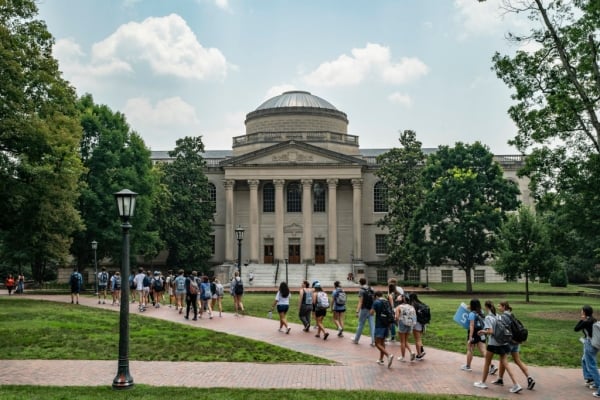
UNC Professor on Leave After Alleged Advocacy of Political Violence
Dixon has faced blowback for his political activism before and remained in his role at UNC.
Eros Hoagland/Getty Images
Officials at the University of North Carolina at Chapel Hill placed Professor Dwayne Dixon on leave Monday while the university investigates his “alleged advocacy of politically motivated violence,” said Dean Stoyer, UNC Chapel Hill’s vice chancellor for communications and marketing.
Dixon, an associate professor of Asian and Middle Eastern studies, used to be a member of Silver Valley Redneck Revolt, a chapter of the antifascist, antiracist, anticapitalist political group Redneck Revolt. The group was formed in 2016 and some members, including Dixon, were present at the 2017 Unite the Right rally in Charlottesville, Va., to provide armed security and medical assistance to counterprotesters. Redneck Revolt disbanded in 2019 and has no active chapters, according to its website.
In a 2018 interview with The Chronicle of Higher Education, Dixon described himself as an “anarchist,” and he is no stranger to blowback for his political activism and support for gun rights. He was arrested for bringing a semiautomatic rifle to a Ku Klux Klan counterprotest in Durham, N.C., in 2018—the case was later dismissed as unconstitutional on the grounds that the charges violated Dixon’s First and Second Amendment rights. He was also among 20 people who protected counterprotesters in Durham when white supremacists protested the removal of a Confederate statue in 2017. Through all these events, Dixon remained employed at UNC Chapel Hill.
Why is Dixon in the hot seat now? The answer is convoluted, but it begins with fliers on the Georgetown University campus.
On Sept. 24, Andrew Kolvet, a spokesperson for the late Charlie Kirk’s Turning Point USA, posted on X a photo of a flier on the Georgetown campus in Washington, D.C., that read, “Hey Fascist! Catch!”—a nod to engraving on the casing of bullets left behind by Kirk’s suspected killer—and “The only political group that celebrates when Nazis die.” The flier also included a QR code to a Google form for a potential Georgetown chapter of the John Brown Gun Club, a Redneck Revolt affiliate organization known as a “leftist gun-rights group” with multiple independent chapters, including one in the D.C. area, according to the Counter Extremism Project. It “arms itself to defend against far-right violence and often appears as a security force at protests to protect against expected far-right violence,” the CEP wrote. Google has since removed the form for violating its terms of service.
University officials removed the fliers and reported them to the FBI. Education Secretary Linda McMahon also weighed in: “At a moment like this, Georgetown has to determine what it stands for as an institution … Allowing violent rhetoric to fester on our nation’s campuses without consequences is dangerous. It must be condemned by institutional leaders,” she wrote on X. “I am grateful to those who spoke out against this and made noise about the posters on campus—you made a difference. There is power in speaking up to reveal these hateful ideologies that have incited deadly violence.”
Kolvet posted again, this time linking to a recent Fox News article that cited Dixon’s involvement in Redneck Revolt based on an old blog post that has since been taken down. “I posted this flyer our team spotted at Georgetown University, and now we find out professors at ‘elite’ schools are members of this group and its offshoots,” Kolvet wrote. “This professor must be immediately fired and the group/network investigated.”
Dixon was placed on leave Monday, which will “allow the University to investigate these allegations in a manner that protects the integrity of its assessment,” UNC’s Stoyer said in his statement. “Depending upon the nature and circumstances of this activity, this conduct could be grounds for disciplinary action up to and including potential termination of employment.”
UNC Chapel Hill officials declined to answer any other questions about Dixon and did not say whether Kolvet’s post or the Fox News article led to the investigation. Dixon did not reply to a request for comment but told the student newspaper The Daily Tarheel that he left the Silver Valley Redneck Revolt in 2018.
A Change.org petition to reinstate Dixon is circulating and as of Wednesday evening had more than 900 signatures. In a statement Wednesday, the North Carolina chapter of the American Association of University Professors, as well as UNC Chapel Hill’s AAUP president, condemned the university’s actions and demanded Dixon be reinstated.
“Right-wing activists are attacking Dixon for prior membership in a group that has been inactive since 2019, and are baselessly connecting him to flyers allegedly posted by a different group on a different campus outside of North Carolina. Fox News picked up the story on September 27, 2025, without verifying the existence of the flyers, and apparently this was enough for UNC’s administration to remove a professor from the classroom in the middle of the semester and bar him from campus,” the statement read. “Let’s call this what it is: UNC administrators are capitulating to a call from a right-wing group, infamous for attacking faculty, to fire a professor based on an unsubstantiated rumor.”
Dixon joins the ranks of dozens of college and university faculty members who have been placed on leave, disciplined or fired in the weeks since Kirk was shot and killed. All of these professors have been investigated after right-wing personalities identified them on social media. Two of them—Michael Hook, who was placed on leave for social media comments he made about Kirk’s death, and Thomas Alter, who was terminated after being accused of inciting violence during a speech—have been reinstated by court orders.
-

University of South Dakota must reinstate professor on leave over Kirk comments, judge orders
This audio is auto-generated. Please let us know if you have feedback.Dive Brief:
- A federal judge has ordered leaders at the University of South Dakota to temporarily reinstate Phillip Michael Hook, a tenured art professor it sought to fire over a social media post critical of Charlie Kirk.
- On Sept. 12, the university notified Hook he would be placed on administrative leave and that it intended to terminate his contract over a private Facebook post he shared criticizing Kirk the day of the conservative firebrand’s killing.
- Hook is suing university leaders, alleging they unconstitutionally retaliated against him over his political speech. The professor’s case has a “fair chance of prevailing,” U.S. District Judge Karen Schreier said Wednesday in granting the temporary restraining order.
Dive Insight:
Hook is just one of an increasing number of college employees who have been reprimanded or fired over their speech about Kirk following his killing on Sept. 10. And a growing number of the educators affected are taking their cases to court. Schreier’s ruling this week represented one of the first court actions in such a lawsuit.
The federal judge said Hook must prove he made his comments as a citizen on “a public matter of concern” and that the University of South Dakota’s actions came as a result of that speech.
Hours after Kirk was killed, Hook said on his private Facebook account that he had no “thoughts or prayers” for Kirk.
In 2012, Kirk founded Turning Point USA, a conservative advocacy group geared toward young people, and became a prominent figure on college campuses in the process. Many of his political beliefs — such as opposition to race-conscious college admissions and gun control — fell in line with those of the conservative movement more broadly.
But his comments on some issues regularly prompted significant outcry and backlash, such as when he called Supreme Court Justice Ketanji Brown Jackson a “diversity hire” and said “prowling Blacks go around for fun to go target White people.” He also espoused the great replacement theory, which labels immigration policies as part of a plot to undermine the power and influence of White people.
“I’m sorry for his family that he was a hate spreading Nazi and got killed. I’m sure they deserved better,” Hook said in his Facebook post. “But geez, where was all this concern when the politicians in Minnesota were shot? And the school shootings? And Capitol Police?”
A few hours later, Hook deleted the post and shared “a public apology to those who were offended” by it on the same account. He published both posts while he was off work, according to court documents.
However, Hook’s original comments gained significant attention after conservative politicians shared a screenshot of them online.
Jon Hansen, the Republican speaker for South Dakota’s House and a 2026 candidate for governor, on Sept. 12 called Hook’s speech disgusting and “unbecoming of someone who works for and represents our University.”
“Yesterday, after seeing the post, I immediately reached out to USD President Sheila Gestring and called on the professor to be fired. I understand that the professor is likely to be terminated from his position,” Hansen said on social media.
A few hours later, South Dakota Gov. Larry Rhoden said Hook’s post made him “shaking mad” and that the South Dakota Board of Regents intended to fire the professor, a decision he applauded.
The same day, Hook received a letter from Bruce Kelley, the university’s fine arts dean, notifying him of the university’s “intent to terminate” his employment.
The letter alleged that Hook had violated two university policies, according to court documents.
One bans “neglect of duty, misconduct, incompetence, abuse of power or other actions” that diminish trust in faculty or prevent them from doing their job. The other requires that faculty “at all times be accurate, show respect for the opinions of others and make every effort to indicate when they are not speaking for the institution.”
University of South Dakota officials said this week that, over the two days between Hook’s post and Kelley’s letter, the university and the South Dakota Board of Regents received hundreds of messages criticizing Hook’s comments and calling for his removal. They confirmed that one such call came from Hansen.
However, the federal judge who ordered Hook’s temporary reinstatement said the officials failed to show that the reaction to the professor’s private comments disrupted his lessons or the university’s operations.
The Sept. 12 letter “identifies Hook’s social media post as the single piece of evidence it used to support its decision to terminate Hook’s position,” Schreier wrote.
Kelley had placed Hook on administrative leave until Sept. 29, when a personal conference was to be held to “discuss this matter and intended disciplinary action.”
Hook sued Kelley and Gestring, along with board president Tim Rave, on Tuesday seeking to have their decision ruled unconstitutional.
Schreier’s order will remain in effect until Oct. 8, when the court is scheduled to hear arguments over a more permanent preliminary injunction. The temporary restraining order allows for the Sept. 29 meeting to still occur, should the defendants choose.
-
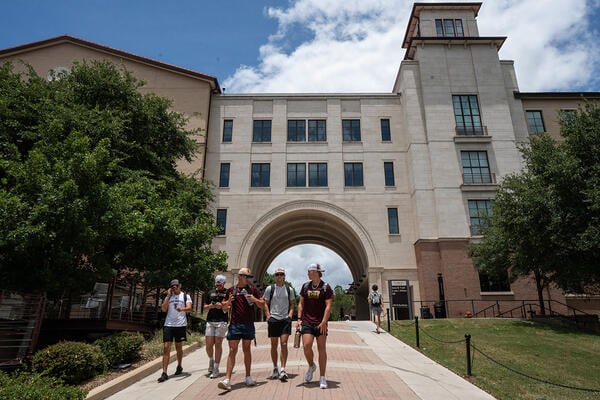
Texas State Fires Professor Accused of Inciting Violence
Alter at Texas State is the second Texas professor fired this week.
Mikala Compton/Austin American-Statesman/Getty Images
Texas State University fired a professor Wednesday after he was accused of inciting violence during a speech at a socialist conference, The Texas Tribune reported.
In a video posted on X, associate professor of history Thomas Alter can be seen giving a speech over Zoom to attendees of the Revolutionary Socialism Conference. “Without organization, how can anyone expect to overthrow the most bloodthirsty, profit-driven mad organization in the history of the world—that of the U.S. government,” he said in the clip, which was circulated online by a YouTuber who infiltrated and recorded the event.
Texas State president Kelly Damphousse said in a statement Wednesday that the university reviewed the comments, which he said “amounted to serious professional and personal misconduct.”
“As a result, I have determined that his actions are incompatible with their responsibilities as a faculty member at Texas State University,” he added. “Effective immediately, his employment with Texas State University has been terminated.”
The video clip shared on social media was spliced and cut together. In the full version of his speech, which is posted on YouTube, Alter discusses the various tactics of different socialist groups.
“Another strain of anarchism gaining ground recently is that of insurrectionary anarchism,” Alter said in his speech. “Primarily coming out of those that were involved in the Cop City protest. These groups, individuals have grown rightfully frustrated with symbolic protests that do not disrupt the normal functioning of government and business. They call for more direct action and shutting down the military-industrial complex and preventing ICE from kidnapping members of their communities. Many insurrectionary anarchists are serving jail time, lost jobs and face expulsion from school. They have truly put their bodies on the line. While their actions are laudable, it should be asked, what purpose do they serve? As anarchists, these insurrectionists explicitly reject the formation of a revolutionary party capable of leading the working class to power. Without organization, how can anyone expect to overthrow the most bloodthirsty, profit-driven mad organization in the history of the world—that of the U.S. government.”
Alter didn’t respond to a request for comment from Inside Higher Ed.
He is the second Texas professor to be fired from their post this week. On Tuesday, Texas A&M officials fired Melissa McCoul, a senior lecturer, and removed two faculty members from their administrative roles after a student complained that the material McCoul taught in a summer course violated President Donald Trump’s executive orders.
-

Texas A&M Professor Arrested on Indecent Exposure Charge
Johns was supposed to begin teaching at Texas A&M University this fall.
Texas A&M University professor Russell Taylor Johns was arrested by university police last Wednesday following an allegation that he exposed himself at the University of Texas at Austin earlier this year, KBTX reported.
Johns, who hadn’t yet begun teaching but was hired to join Texas A&M’s Harold Vance Department of Petroleum Engineering this fall, worked at UT Austin from 1995 to 2010 and was invited back to campus in April by its department of petroleum and geosciences. Court documents obtained by KBTX allege that Johns exposed his genitals and touched himself inappropriately at the UT Austin student center on April 29. A staff member told police that she saw Johns masturbate while looking at two female students sitting across from him.
Johns previously taught in the Department of Energy and Mineral Engineering at Pennsylvania State University.
Johns was booked at the Brazos County Detention Center and released on a $7,000 bond. His bond conditions require that he not contact the alleged victims or their families, refrain from committing additional offenses, and submit to random drug testing. In Texas, indecent exposure is a Class B misdemeanor and punishable by up to 180 days in jail and a $2,000 fine.
Texas A&M did not return Inside Higher Ed’s request for comment Tuesday. A university spokesperson told KSAT that the university was not aware of the allegation when Johns was hired and that he is currently suspended.
-
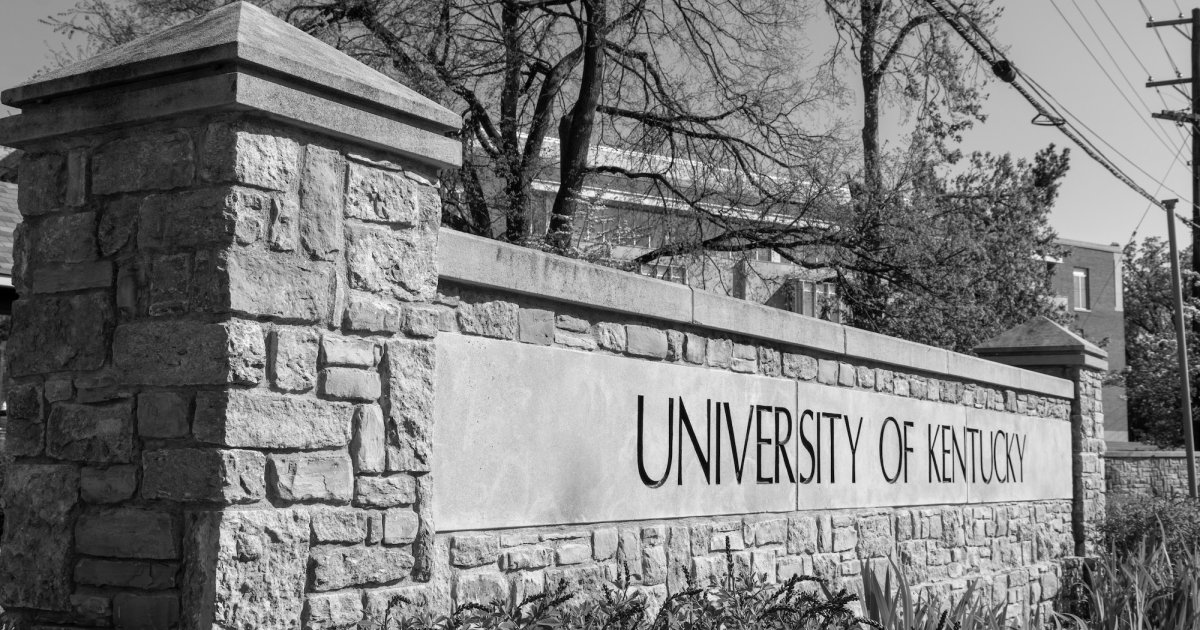
The University of Kentucky suspended a professor for criticizing Israel. Now, FIRE’s Faculty Legal Defense Fund is stepping up to defend him.
LEXINGTON, K.Y., Aug. 7, 2025 — A University of Kentucky professor suspended for criticizing Israel’s conduct in the Gaza war now has legal representation thanks to the Foundation for Individual Rights and Expression.
Ramsi Woodcock had established a steady career as a law professor at UK, where he has taught for seven years. He earned tenure in 2022 and was promoted to full professor on July 1.
Less than two weeks later, the vice provost of the university informed the professor that the university received unspecified complaints about Woodcock’s criticisms of Israel outside the classroom on his personal website and at conferences.
The university failed to respond to Woodcock’s requests for copies of the complaints. On July 18, university officials removed Woodcock from teaching and banned him from campus. The university also sent a message to its campus condemning Woodcock’s views as “repugnant” and publicly announcing an investigation.
Specifically, the university took issue with a petition Woodcock circulated to other law professors across the country that called for military action against Israel because of its war in Gaza, as well as his arguments that Israel should cease to exist.
“This isn’t complicated,” said Graham Piro, FIRE’s Faculty Legal Defense Fund fellow. “Woodcock’s arguments about Israel are clearly protected speech on a matter of public concern, and as a faculty member at a public institution, he has the right to voice his ideas, regardless of whether others find them objectionable. And reprimanding a professor over one set of views opens the door to further restrictions on other opinions down the road.”
With the help of the FLDF, Woodcock is being represented by Joe F. Childers of Joe F. Childers & Associates. Childers will work to lift Woodcock’s suspension so he can return to teaching in the classroom and continue speaking freely outside of it.
“Punishing me for my views on Israel sends a terrifying message to students and colleagues: voice the ‘wrong’ opinion on a sensitive subject and face consequences from the university,” Woodcock said. “It’s not only my career that’s at stake — it’s about whether the University of Kentucky will continue to exist as an institution that encourages and permits free thought and expression.”
The Foundation for Individual Rights and Expression (FIRE) is a nonpartisan, nonprofit organization dedicated to defending and sustaining the individual rights of all Americans to free speech and free thought—the most essential qualities of liberty. FIRE recognizes that colleges and universities play a vital role in preserving free thought within a free society. To this end, we place a special emphasis on defending the individual rights of students and faculty members on our nation’s campuses, including freedom of speech, freedom of association, due process, legal equality, religious liberty, and sanctity of conscience.
CONTACT:
Karl de Vries, Director of Media Relations, FIRE: 215-717-3473; [email protected]
-

Republicans Denounce Georgetown Professor for Post on Iran
On June 22, the United States bombed Iranian nuclear enrichment facilities. Observers wondered whether it was the start of another lengthy, destructive American war in the Middle East.
Hours later, a conservative social media account with more than 4.3 million followers highlighted one response—allegedly from a Georgetown University professor. According to a screenshot the Libs of TikTok X account posted, Jonathan Brown, the Alwaleed bin Talal Chair of Islamic Civilization, had written on X, “I hope Iran does some symbolic strike on a base, then everyone stops.”
Tagging the university’s X account, Libs of TikTok summarized it this way: “Professor at Georgetown University @Georgetown says he hopes Iran strikes a US base.”
What transpired is becoming a familiar story in U.S. higher education: Conservatives denounce a faculty member’s speech, members of Congress join in and eventually pressure a prestigious university’s president to publicly denounce and punish the scholar.
In his own June 22 X post, Congressman Randy Fine, a Florida Republican whom Gov. Ron DeSantis previously wanted to lead Florida Atlantic University, noted that Georgetown interim president Robert M. Groves was scheduled to testify before the House Education and Workforce Committee, which he did on Tuesday.
“This demon had better be gone by then,” Fine wrote of Brown. “We have a Muslim problem in America.”
A June 23 Iranian strike that appeared symbolic did mark the end of the conflict. President Trump said Iran had forewarned the U.S. about the coming attack on a U.S. base in Qatar, allowing Americans to avoid any casualties. But, unlike that fight’s swift end, the battle over Brown’s social media post has dragged on.
At the House committee’s hearing this week, former committee chair Virginia Foxx, a North Carolina Republican, asked Groves about Brown, who works in Georgetown’s respected School of Foreign Service. “Is this person really suited to be educating the next generation of American diplomats?” she said.
Groves didn’t respond that this was a personnel matter he couldn’t discuss. Like former Columbia University president Minouche Shafik did in front of the same committee last year, he discussed actions the university was taking regarding his employee.
“Within minutes of our learning of that tweet, the dean contacted Professor Brown, the tweet was removed, we issued a statement condemning the tweet, Professor Brown is no longer chair of his department and he’s on leave, and we’re beginning a process of reviewing the case,” Groves said.
“You are now investigating and disciplining him?” Foxx asked.
“Y-yes, Congresswoman,” Groves said.
He responded differently to a question from another Republican about Georgetown employee Mobashra Tazamal, an associate director of an Islamophobia research project who allegedly reposted a statement that said, “Israel has been recreating Auschwitz in Gaza for two years.” In that case, Groves said he rejected the statement but added, “That’s behavior covered under the First Amendment on social media that we don’t intervene on.”
‘Willful Misreading’
Greg Afinogenov, an associate history professor and president of Georgetown’s chapter of the American Association of University Professors, said Brown has received “death threats, his family has come under attack and members of the university administration have also criticized him and disavowed him.”
Afinogenov said the university should clarify that Brown’s post was “protected speech.”
The university didn’t provide Inside Higher Ed an interview or answer most written questions Thursday. In an email, a university spokesperson said Brown is no longer chair of the Arabic and Islamic Studies Department. But the spokesperson didn’t say why or whether he violated any policy.
“He retains his faculty appointment,” including his named chair position, the spokesperson wrote.
In a statement the day after Brown’s alleged post, the university said, “We are appalled that a faculty member would call for a ‘symbolic strike’ on a military base in a social media post.”
“The faculty member has since deleted the post and stated that he would not want any harm to befall American servicemembers,” the statement said. “We are reviewing this matter to see if further action is warranted. We take our community’s concerns seriously and condemn language which is deeply inconsistent with Georgetown University’s values.”
In response to a request for an interview and written questions, Brown told Inside Higher Ed in an email, “I am unable to make any public comments at this time.” He previously told Fox News Digital he was “calling for de-escalation” in his post, likening it to the strikes Iran ordered after an American drone strike killed Gen. Qassim Suleimani during Trump’s first term, “with telegraphed warning and no American casualties and no one felt any further need for attacks.”
In a statement, the Council on American-Islamic Relations said that “to frame Dr. Brown’s comment as unpatriotic or violent, as some have done, requires a willful misreading of his intent and of the broader context of the brief U.S.-Iran war.”
“Hoping for a swift end to the war was the clear intent of his message, it was a sentiment shared by many Americans, and it is what ultimately happened: Iran launched a telegraphed strike on a U.S. military base that harmed no one, President Trump declined to respond, and the war ended,” the statement said.
For Afinogenov, the incident bodes ill for faculty rights.
“This procedure of hauling members of university administrations before” a “congressional kangaroo court” harms academic freedom, he said. Administrators should push back against these “smear campaigns,” and Georgetown should articulate a policy to protect faculty and other members of the university community from retaliation for their “extramural speech,” such as on social media, he said.
Over all, Afinogenov said, Brown’s situation is part of an “attack on academic freedom and the independence of universities in general, which we’re seeing across the country.”
-

The Professor is In, 2nd Edition (Karen Kelsky)
PLEASE READ: 2nd Edition Book News and Promotion
I just got word that the second edition of The Professor Is In book – orig. planned for September – might be *delayed*!
It can’t ship out until we sell the extra inventory of the 1st edition that is still on hand at Amazon, Random House, and other sellers (about 2000 copies).
I REALLY want the second edition to come out Fall 2025 in time for its 10th anniversary, so I’m running a special promotion!
If you buy 100 (new) copies of the first edition (ie, the one that’s on sale now at Amazon, Random House, etc.) I will do a FREE 1 hour virtual talk for your department or program on any aspect of the academic or post-academic job search, grant writing, book proposals, or any other topic in my repertoire.
If you buy 200 new copies, I’ll do a full 1.5 hour virtual talk!
//Rest assured, the actual job search advice content is virtually unchanged between the two editions! So the first edition remains 100% effective for anyone seeking an academic job in 2025. (For reference, the big difference in the second ed., is in the wider contextualization of this advice – deteriorating conditions of academic labor, attacks on tenure and DEI, considerations for marginalized job seekers around issues of disability, gay and trans identity, BIPOC identity, and mental illness and neurodivergency, making the decision to leave, and above all, prioritizing your personal health and well-being). The one chapter of advice that has been entirely rewritten is the one on “What to Wear”, and I’m happy to send along pdfs of that chapter to anyone who participates in this promotion and wants the updated fashion advice!//
But wait, there’s more! 🙂
If you buy 50 books, I will do a 30 minute Q & A with your class or program.
If you buy 25, I’ll give you a discounted rate for a virtual or in person talk.
And if you buy 1 to 10 copies, send me the receipt (at [email protected]) and I’ll put you in a drawing for a free suite of services – editing your job or grant documents, doing a zoom consultation with me, etc. – worth $500! You will get as many entries as copies you buy, up to 10.
Of course, if you’re a Dean or Provost and want to buy 1000+ copies for all the grad students in your college … well, DM me and let’s talk! I’d be glad to reciprocate in some big way that benefits your program.
Thanks, and please share widely! I hope together we can get this done!

